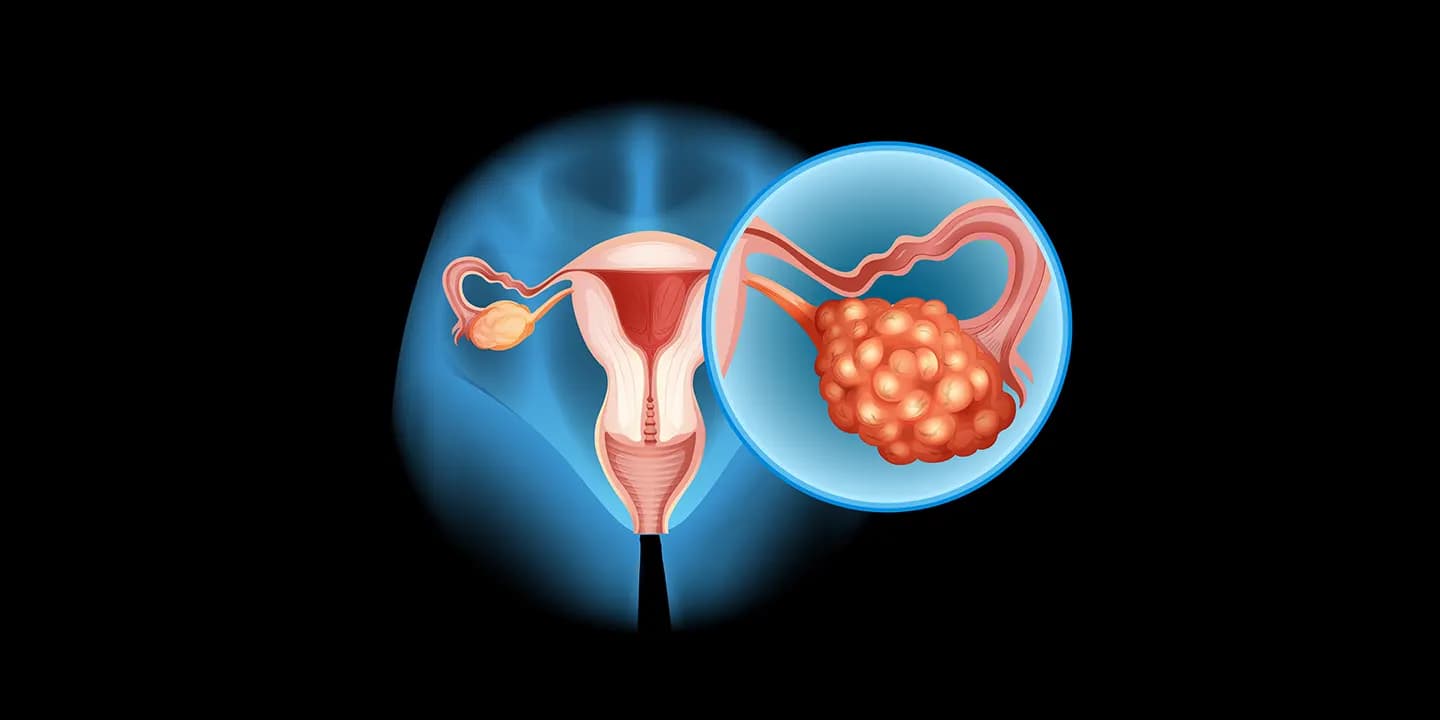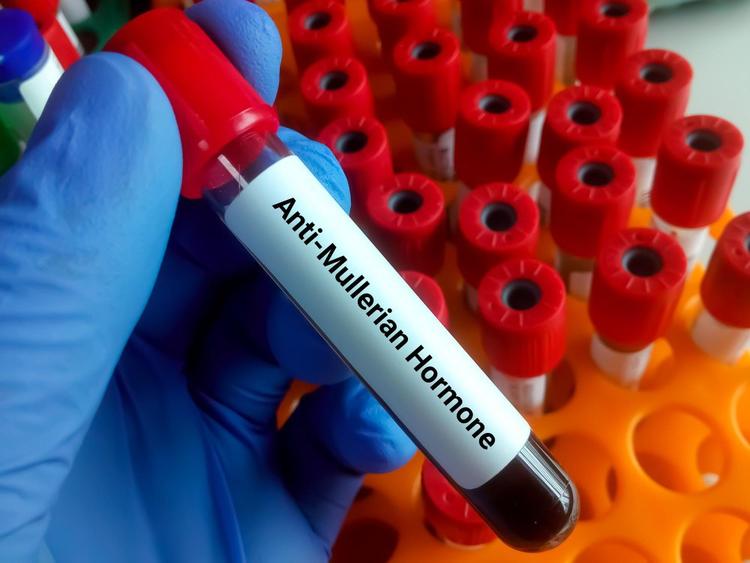What Is Ovarian Cancer? Signs, Symptoms, Test, and Treatment

Medically Reviewed By
Dr. Ragiinii Sharma
Written By Srujana Mohanty
on May 14, 2022
Last Edit Made By Srujana Mohanty
on Mar 15, 2024

Ovarian cancer has been marked as the 8th most common type of cancer in women and the 18th most common among other types. With the prevalence of this condition rising at an alarming rate, more and more women are subjected to this brutal diagnosis every day. Statistics from the National Ovarian Cancer Coalition recently reported that only 15% of women with ovarian cancer get an early diagnosis. Unfortunately, the rest of the 85% often find out about their disease pretty late, leading to pronounced complications and severity. Most women miss out on an early diagnosis due to a lack of confusing symptoms. Owing to the growing severity, most doctors now suggest getting a routine check-up if you experience persistent abdominal discomfort for 2 weeks and more. This article will explore ovarian cancer, its early signs and symptoms, diagnosis, and treatment.
What is Ovarian Cancer?
Ovarian cancer is a type of cancer that causes the malignant growth of cells or cancer in ovaries. These cancerous cells grow, proliferate, spread quicker, and eventually invade the body’s overall functioning.
What are the Early Signs of Ovarian Cancer?
As we said initially, the primary reason ovarian cancer often goes undiagnosed is the lack of symptoms. Most women either don’t experience any symptoms, or they don’t pay attention to the early signs and symptoms. Following are some of cancer in ovaries symptoms worth prioritizing:
- Ovarian cancer bloating
- Abdominal pain and discomfort
- Reaching fullness quickly after a few bites of food
- Frequent urination
- Back pain
- Fatigue
- Indigestion
- Abdominal swelling
- Irregularities in the menstrual cycle
- Constipation, etc.
Remember that the symptoms of ovarian cancer are quite gradual. As cancer spreads and levels up in stage, the symptoms worsen. If you are experiencing any of these symptoms and brushing them aside as “casual symptoms that will go away in a week,” you need to avoid doing that. Additionally, the above symptoms could be nothing at all. You only need to focus on the symptoms if they become persistent or recurrent.
What are the Types of Ovarian Cancer?
The site of inception of ovarian cancer determines the type of ovarian cancer the patient has or is likely to develop. Ideally, there are three primary types of cancer, including: Epithelial ovarian cancer – includes serous and mucinous carcinoma in the ovaries. Stromal tumors – are diagnosed at an early stage owing to the rigorous symptoms. Germ cell tumors – are very prevalent in younger women.
What are the Causes and Risk Factors Associated with Ovarian Cancer?
Simply knowing the types of ovarian cancer isn’t enough. It is equally essential to find the causes and risk factors makes treatment more effective. Researchers are still unsure about the definitive cause behind ovarian cancer, but several risk factors are associated with it. Some of the common causes/risk factors involve:
Genetic predisposition
There are two particular genes – BRCA1 and BRCA2 that you inherit from your parents that impose high risks of developing ovarian cancer. Some of the other genetic mutations in RAD51C and RAD51D increase ovarian cancer risks in women. These mutations are also associated with breast cancer and Lynch syndrome risks.
Older age
Surprisingly, age plays a crucial factor in ovarian cancer and its development. Older women are particularly at higher risk.
Obesity or unregulated weight
Women who are obese or overweight have higher risks of ovarian cancer due to unregulated hormonal balance in the body. Excess body weight also contributes to the severity of polycystic ovarian syndrome in the body, which increases the risk of ovarian cancer.
Hormone replacement therapy (after menopause)
Most women undergo hormone replacement therapy after they hit menopause. Although these synthetic forms of estrogen and other female reproductive hormones regulate the post-menopausal symptoms, they also contribute to ovarian cancer risks in most women.
Endometriosis
The excess outgrowth of tissue outside the uterus leads to ovarian cancer risks in most women. Getting prompt treatment for endometriosis is thus crucial to rule out possible complications associated with ovarian cancer and its development. Also, if you haven’t been pregnant before, the chances or risks of ovarian cancer increase drastically in that case as well. A pre-existing family history of breast or ovarian cancer could also contribute to the risk factors.
How is Ovarian Cancer Diagnosed?
Several tests and procedures ascertain a diagnosis of ovarian cancer. Since ovarian cancer is quite a late-blooming and aggressive form of cancer, getting an accurate diagnosis is crucial. So, your doctor might prescribe a few different tests for ovarian cancer to rule out any complications. Some of the most notable ways to diagnose ovarian cancer are: Physical pelvic examination – this is a physical examination wherein the doctor or lab technician will insert a finger into the vagina to assess the reproductive organs while putting pressure on the abdomen with the other hand to feel the reproductive organs. Blood tests – the most common blood test for detecting ovarian cancer is the CA25 test. It measures the levels of the cancer antigen in the bloodstream to rule out the possibility of ovarian cancer. Imaging – ultrasound and CT scans are the most advanced and accurate diagnostic tools for diagnosing ovarian cancer in women. Genetic testing – if your doctor suspects ovarian cancer based on genetic mutation or family history, they might prescribe genetic testing. Surgery – most women undergoing hysterectomy get their uterus, ovaries, and excised reproductive organs biopsied to check for possibilities of ovarian cancer. Once your doctor confirms a diagnosis, they will walk you through all the subjective treatment options, depending on the cancer stage. The higher the stage, the more aggressive is the treatment regimen.
What are the Treatment Options for Ovarian Cancer?
Ovarian cancer treatment depends on the severity of cancer and how fast it is progressing. Some of the treatment options include:
Surgical interventions
Surgeries help remove cancer either from one or both the ovaries or the entire reproductive anatomy of the patient. In advanced cases where cancer has metastasized to other parts of the body, your doctor will advise surgeries to remove cancer as much as possible.
Chemotherapy
The chemotherapy treatment involves chemicals injected into the patient’s bloodstream using an IV to kill all the cancer cells and prevent them from spreading to other vital organs.
Targeted therapy
In this type of treatment, the doctors first assess the cancerous cells to find out their weak links. Focusing on the specific weaknesses, targeted drugs are administered into the body to kill the cancerous cells specifically without harming the healthy neighboring cells and tissues in the body.
Hormone therapy
Estrogen has a proactive impact on ovarian cancer progression and spread in the diagnosed patient. Hormone therapy uses drugs that block the secretion and impacts of estrogen in the body, thereby regulating the spread and expression of ovarian cancer.
Immunotherapy
Although in the initial stages of research, the use of immunotherapy for ovarian cancer helps bypass the shield created by the cancerous cells from the body’s immune system and destroys them in the process. It is often an advised treatment option in the earlier stages of ovarian cancer.
Palliative care
The last form of treatment is providing the patient with supportive care when nothing else can be done. The doctors ensure that the patients aren’t in pain and live a quality life for the last few days, months, or years they have with them.
Frequently Asked Questions:
-
Can ovarian cancer be detected in a blood test?
Although there are no specific blood tests for ovarian cancer, your doctor might prescribe a CA25 test to check for the presence of cancer antigens in the bloodstream. -
Can ovarian cancer be treated successfully?
Most ovarian cancers are treatable with an early diagnosis and proper surgical and medical interventions. However, it is a subjective experience and depends on the patient’s well-being and how they are responding to the treatment. -
What is the best treatment for ovarian cancer?
Surgical interventions are considered the best treatment for ovarian cancer because they excise the affected ovaries or the other areas where cancer has spread.
Conclusion
Ovarian cancer is a leading cause of death in thousands of women worldwide. Although there aren’t any preventative vaccines available, early diagnosis and a rigorous treatment regimen can effectively reverse the impacts and put a diagnosed patient on the path of remission. So instead of pushing aside your symptoms as “unimportant,” see a doctor for an early diagnosis or preventive measure.



